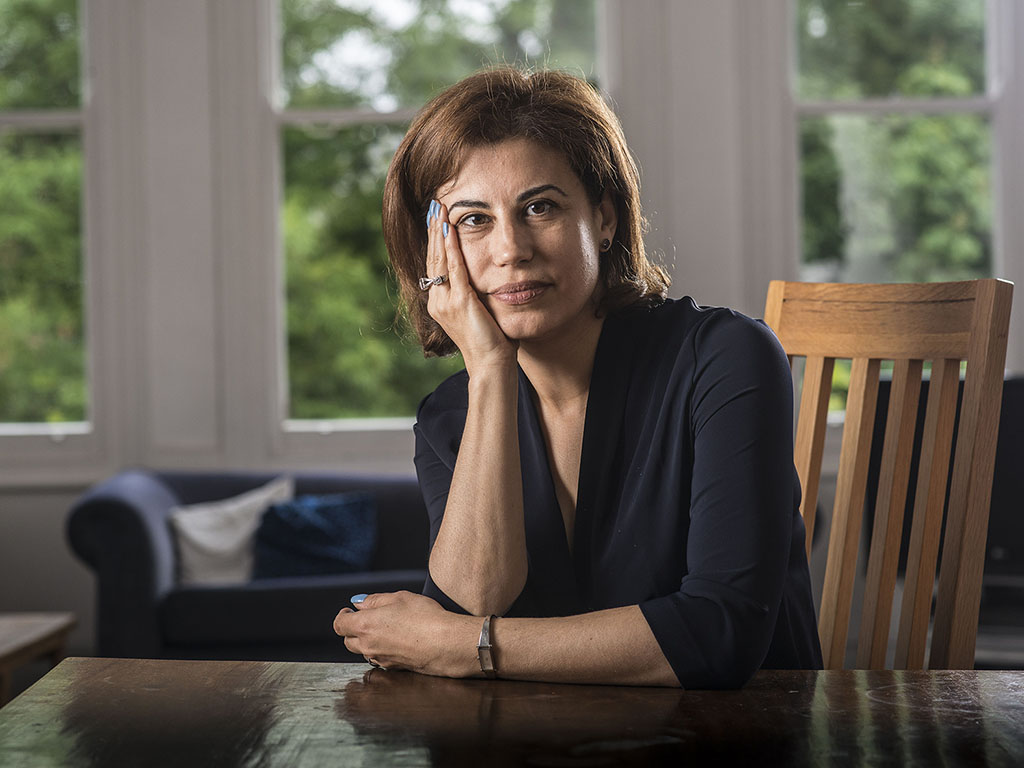
What forms our political convictions or spurs us on to act? How much do we inherit from our forebears and how much is shaped by our own life experience or what the poet Adrienne Rich called the “great dark birds of history”, those events that “scream and plunge… into our own personal weather”?
It is to such questions that the feminist writer Natasha Walter turns in this, her most personal work so far: a re-examination of the life and political choices of her mother, Ruth, and, through her, of other family members. Walter felt compelled to walk these “paths of the past” after her mother chose to end her own life in December 2017, surrounded by pictures of her beloved children and grandchildren, leaving brief notes of explanation and loving reassurance.
Ruth was 75 and feared that she was experiencing the early signs of dementia, but her malaise had far deeper roots. The child of Jewish refugees from Nazi Germany, she was filled with a sense of personal dread and political hopelessness as she saw Britain, particularly after the Brexit vote, shift from a liberal to illiberal democracy, disfigured by the rise of xenophobia.
Before the Light Fades is an elegantly constructed work, moving between long passages on Walter’s struggle to come to terms with the loss of her mother and deep dives into the personal and political histories of her parents and grandparents. Ruth’s father Georg had been imprisoned and tortured for his brave anti-fascist protests in Hamburg in the early Thirties; her mother Eva had endured the horror of the night that “Kristallnacht cracked through Hamburg”.
Escaping to Britain in 1939, Georg and Eva quickly retreated into respectable conformism. Born in 1942, Ruth was a typical sullen teen rebel, painting her nails black with school ink; in her early twenties, to the alarm of her parents, she became involved in the movement for nuclear disarmament and the Committee of 100, where she met and fell in love with the anarchist journalist Nicolas Walter.
Ruth and Nicolas were part of the daring “Spies for Peace” group which in July 1963 broke into a secret government bunker near Reading. The “spies” found and publicly released official papers relating to plans in the event of a nuclear attack. Despite a nationwide police hunt, none of the group were ever caught. Nicolas continued as an activist but motherhood diminished Ruth’s appetite for taking such risks.
Ruth remained an uncompromising feminist. As a teen, Walter was embarrassed by her mother’s refusal to beautify herself and the family’s “outrageously messy” house. The young, fashionable Natasha delights in winning a Vogue writing competition (finding herself at a magazine lunch next to a stick-thin, Chanel-wearing Anna Wintour), throwing herself into the “fizzy little world of the media” with its “narrow values”.
However, it is the continuities, not the clashes, within Walter’s family that most strike the reader. Like her father before her, Ruth started out as a rebel, eventually retreating into a kind of personal timidity, the terror of her parents’ early experience surely never far from the surface. She remained steadfast in her radicalism, working in support of the marginalised: immigrants, people with disabilities and the old.
[See also: How to build a dictionary]
Walter herself founded the charity Women for Refugee Women, coming to understand that her parents bequeathed to her the belief that “politics was far too important to be left to the politicians”. She has, latterly, become involved in Extinction Rebellion.
Natasha Walter’s turn to activism is one kind of satisfying ending, but it is Ruth herself – an intensely human mix of questing, endurance, public courage and private fears – that haunts, and inspires, this story. At the book’s close Walter has come to reassess many of her mother’s decisions, from ending her marriage to Nicolas to how she chose to age, as “brave and interesting”. But what makes the book ultimately so affecting is not just its restatement of the “necessity of standing up for what you believe, even in the full knowledge that you will not succeed” or the love that Walter so clearly has for her parents, but the sombre, elegiac and respectfully uncertain tone that Walter deploys to uncover, to understand and to honour the lives of those who went before her.
Before the Light Fades: A Memoir of Grief and Resistance
Natasha Walter
Virago, 256pp, £18.99
This article appears in the 13 Sep 2023 issue of the New Statesman, The Revenge of the Trussites





